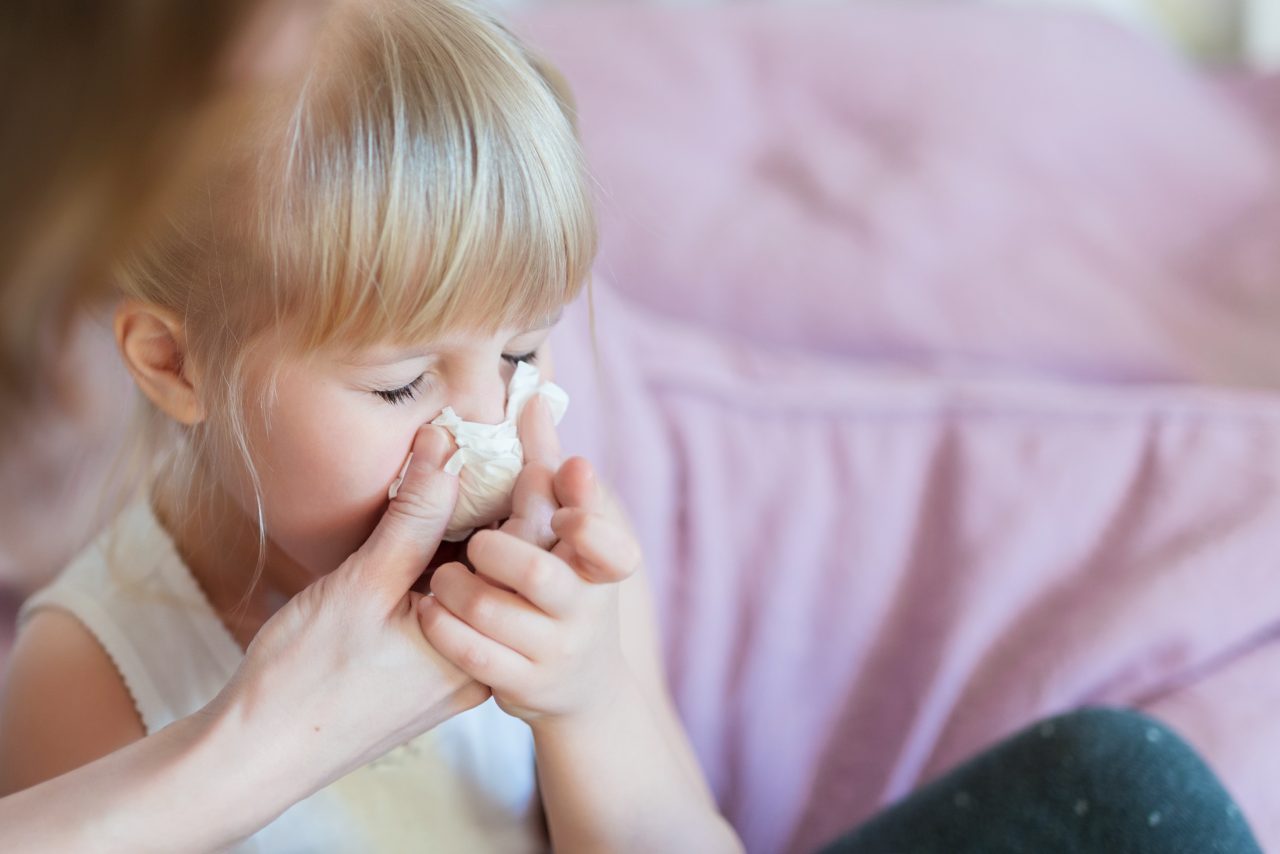Shopping malls are crawling with snifflers, airports are bustling with coughers, and everywhere we turn we’re confronted with viruses that bring on colds.
It often starts with a sore throat and sniffles, progresses to sneezes and coughs and culminates (sometimes) in a low-grade fever. The common cold is so common that we can feel when it’s coming on and can predict how long it will linger.
We know, with sad certainty, that there is no cure for the common cold. The best we can do is try to avoid catching one: during this time of year, it is important to keep your hands clean – and away from your face. Stay hydrated; eat healthy, nutritious foods and get plenty of sleep.
Also, be patient. Despite your best efforts, it is not unusual for a young child to develop as many as 12 colds per year, and colds can last up to 14 days. If your child is not getting better after two weeks, or if symptoms are getting worse, see your doctor.
Otherwise, if you or your child has been invaded by a viral army, you’ll have to ride it out with fluids and rest.
What Works:
Warm Fluids. Mom’s chicken soup is not magical (sorry, mom), but it does provide two key cold remedies: heat and hydration. The heat helps soothe throat soreness and loosens mucus to thin out congestion. And clear fluids help to keep the body hydrated.
Water helps remove toxins. That means hydration is essential to staying healthy and fighting off colds.
To lessen coughing at bedtime, honey has also been shown to help, particularly if you mix a teaspoon of honey in warm water. Keep in mind, honey is not recommended for infants under the age of 1.
Rest. Sleep is incredibly restorative. Studies routinely show that people who don’t get enough sleep are more likely to get sick – and stay sick longer – than people who regularly get quality rest. It might seem strange to think that the most aggressive thing you can do to battle your cold virus is to fall asleep, but rest gives your immune system what it needs to win the fight.
Humidifiers and Saline. To alleviate stuffy noses, I recommend over-the-counter saline nose drops or sprays. For babies, one to three drops per nostril can help. Use a bulb syringe to clear the nostrils. Nasal congestion is no fun at any age, but for babies, nasal congestion can impact feeding and sleep. So, prior to nursing and naps, try to clear those tiny nostrils.
Humidifiers help alleviate coughing. I usually recommend a humidifier instead of a vaporizer, which could cause burns.
What Doesn’t Work:
Antibiotics. Antibiotics are excellent at targeting bacteria. But colds are caused by viruses, not bacteria. When it comes to colds, antibiotics simply won’t help.
Over-the-Counter Cough Medications for Children. For sore throats and fever management, stick with acetaminophen and ibuprofen. Cough medications are not recommended for children, but throat sprays for children over 6 and honey-based cough remedies for children over 1 are safe to use.
What Might Work:
Zinc. Many parents ask me about zinc supplements. Research has had mixed results. Some studies show that it can reduce the length of a cold, but there is not yet enough evidence for pediatricians to fully support it.
Again, when it comes to the common cold, nothing beats prevention. Eating a well-balanced diet, staying hydrated, practicing proper hygiene, getting plenty of sleep, and getting a flu vaccine can help you navigate cold and flu season relatively unscathed.
Stay healthy!



